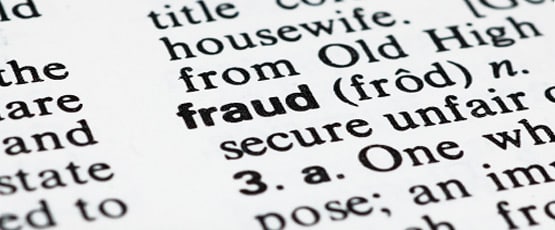The Chamber of Commerce has commenced a well-financed and aggressive lobbying campaign to undermine America’s most effective whistleblower law, the False Claims Act. To justify its anti-whistleblower campaign the Chamber published a report entitled, “Fixing the False Claims Act: the Case For Compliance-Focused Reforms.”
The purpose of this blog series is to combat the Chamber’s misinformation, and explain why the False Claims Act must be protected.
Fact Number 22:
The Chamber argues that the penalty provisions of the FCA, which permit civil penalty awards from $5,500 to $11,000 per claim, should be removed. Further, it claims that “courts have almost uniformly concluded that a penalty should be awarded for each false claim submitted, which can result in an award of tens or hundreds of millions of dollars for large number of law-dollar claims.”
This argument is false and misleading. The Chamber cited to, with approval, a district court case, which awarded no damages whatsoever in a case in which the company submitted 9,136 false or fraudulent claims, focused on a bid-rigging. The appeals court appropriately rejected the no-damages holding, which would have permitted the company to escape all liability after having submitted thousands of false claims to the government. The court, however, also rejected a strict application of the $5,000-11,000 penalty provision.
Instead, the court correctly ruled that the FCA could not impose excessive fines or penalties on a defendant. But instead of permitting a fraudster (who also engaged in criminal bid-rigging as part of the scheme) to escape the penalties provision and profit from its fraud, the appeals court upheld a flexible approach for setting reasonable damages.
As the appeals court correctly reasoned:
“The District Court’s methodology cannot be said to have furthered the statutory purpose. Indeed, an award of nothing at all because the claims were so voluminous provides a perverse incentive for dishonest contractors to generate as many false claims as possible, siphoning ever more resources from the government. Though we agree that the number of false invoices presented is hardly a perfect indicator of the relative liability that ought to attach to each FCA defendant, injustice is avoided in the particular case by the discretion accorded the government and a relator to accept reduced penalties within constitutional limits, as ultimately adjudged by the courts.”
In the second case cited to by the Chamber of Commerce to justify its gutting of the FCA, the Federal District Court also prohibited the government from collecting excessive penalties. The court ruled that it was impermissible to collect the full civil fine for all 51 violations of law the defendant committed, and reduced the penalties permitted to a maximum amount of merely $35,000, or just $687 per violation.
Other courts have also reduced or eliminated per/violation penalties when they were deemed excessive.
Whistleblowers and their supporters are strongly urged to read this blog series and share it with friends. In addition, an Action Alert has been issued by the National Whistleblower Center so members of the public inform their representatives that the False Claims Act should not be “reformed” as proposed by the Chamber.
